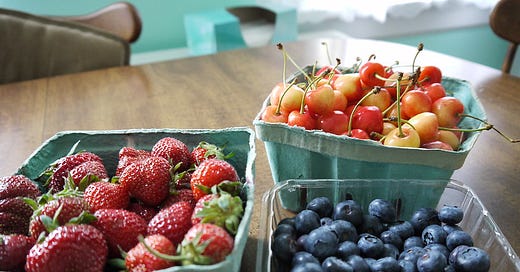One of my favorite things about summer is getting to eat a variety of fresh fruits in season. The rest of the year I can get by on apples and pears, harvested in the fall and keeping through the winter, plus raisins and other dried fruit. But while I know that I can find other fruit in the grocery store, produce grown out of season — especially that tra…
Keep reading with a 7-day free trial
Subscribe to The Pietist Schoolman to keep reading this post and get 7 days of free access to the full post archives.



